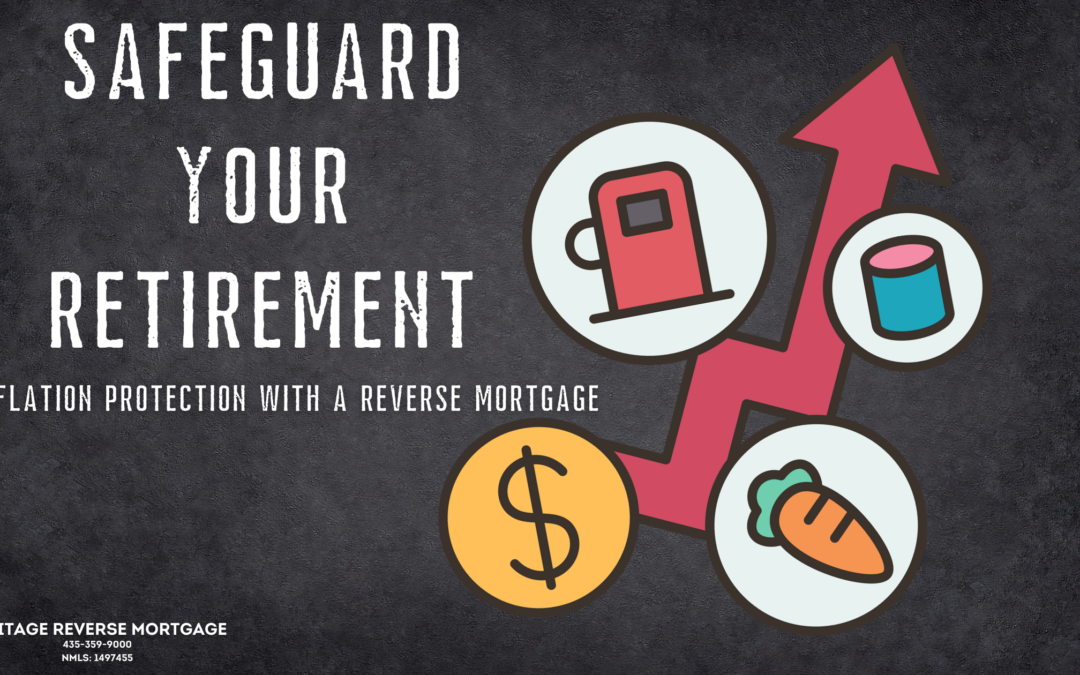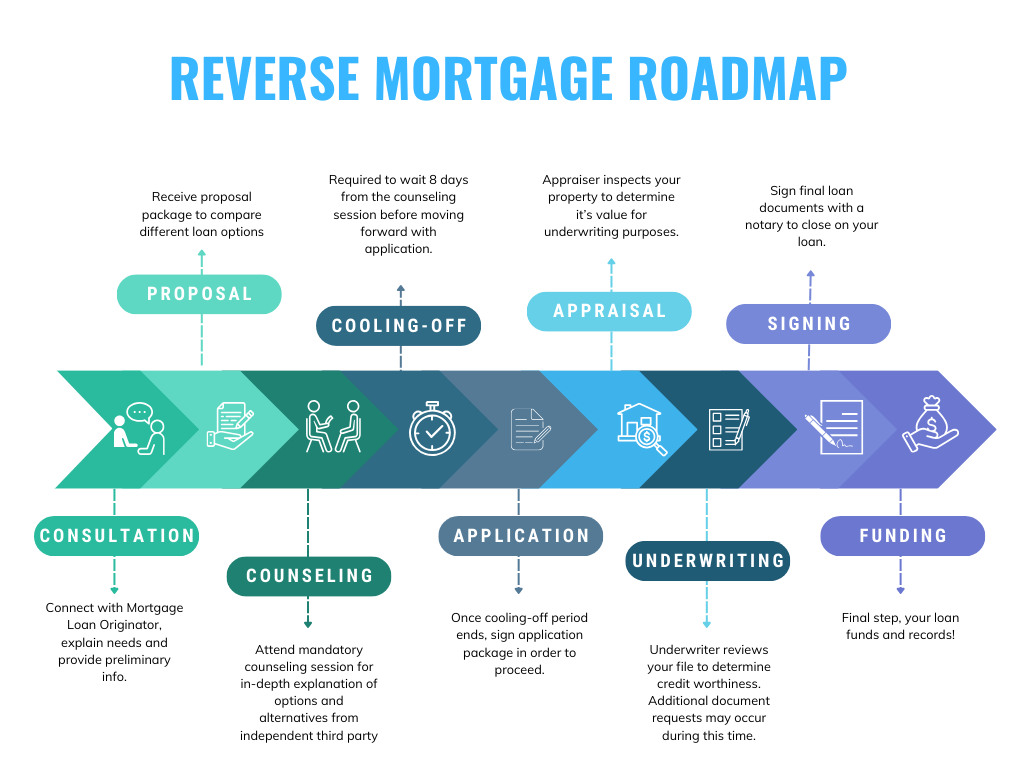How to Purchase Reverse Mortgage and Unlock Your Home’s Equity
How to Purchase Reverse Mortgage and Unlock Your Home’s Equity
Blog Article
Empower Your Retirement: The Smart Method to Purchase a Reverse Home Mortgage
As retired life strategies, lots of individuals look for efficient techniques to boost their economic independence and well-being. Amongst these methods, a reverse home loan emerges as a feasible choice for property owners aged 62 and older, enabling them to take advantage of their home equity without the requirement of month-to-month repayments. While this monetary tool provides several benefits, including boosted cash money circulation and the prospective to cover crucial expenses, it is crucial to recognize the ins and outs of the application process and vital factors to consider entailed. The following actions might reveal how you can make an educated decision that could significantly influence your retired life years.
Understanding Reverse Home Mortgages
Understanding reverse home mortgages can be vital for home owners looking for monetary flexibility in retirement. A reverse home mortgage is an economic product that permits qualified property owners, usually aged 62 and older, to convert a section of their home equity right into cash. Unlike standard home mortgages, where debtors make monthly settlements to a lending institution, reverse mortgages enable home owners to receive repayments or a lump amount while maintaining possession of their home.
The quantity offered with a reverse home loan depends on a number of factors, including the home owner's age, the home's worth, and present rate of interest. Significantly, the funding does not have to be repaid up until the home owner sells the home, vacates, or passes away.
It is vital for potential consumers to recognize the effects of this monetary product, consisting of the influence on estate inheritance, tax obligation factors to consider, and recurring obligations associated with residential property upkeep, tax obligations, and insurance. Additionally, counseling sessions with accredited experts are typically called for to ensure that consumers totally comprehend the terms and problems of the loan. Generally, a detailed understanding of reverse mortgages can empower property owners to make informed decisions concerning their financial future in retirement.
Advantages of a Reverse Home Mortgage
A reverse mortgage provides numerous engaging benefits for qualified home owners, particularly those in retirement. This economic device enables elders to convert a section of their home equity into money, offering vital funds without the demand for month-to-month home loan settlements. The money gotten can be made use of for numerous purposes, such as covering medical costs, making home renovations, or supplementing retired life earnings, hence improving overall financial adaptability.
One substantial advantage of a reverse home loan is that it does not require repayment up until the property owner vacates, offers the home, or dies - purchase reverse mortgage. This attribute allows retirees to maintain their way of living and satisfy unexpected expenses without the worry of month-to-month settlements. In addition, the funds gotten are typically tax-free, permitting home owners to utilize their money without worry of tax obligation implications
Moreover, a reverse mortgage can supply comfort, recognizing that it can function as an economic safety internet throughout difficult times. Property owners likewise keep possession of their homes, guaranteeing they can continue residing in a familiar atmosphere. Ultimately, a reverse home mortgage can be a critical funds, encouraging senior citizens to manage their finances effectively while enjoying their golden years.
The Application Refine
Navigating my blog the application procedure for a reverse home loan is an important action for home owners considering this financial alternative. The initial phase entails reviewing qualification, which typically calls for the house owner to be at the very least 62 years of ages, own the residential or commercial property outright or have a reduced home loan balance, and occupy the home as their main home.
As soon as eligibility is confirmed, property owners have to undertake a therapy session with a HUD-approved therapist. This session ensures that they fully recognize the ramifications of a reverse home loan, consisting of the responsibilities entailed. purchase reverse mortgage. After completing therapy, candidates can proceed to collect required documentation, including evidence of income, properties, and the home's value
The next action entails submitting an application to a lending institution, who will certainly assess the financial and building certifications. An assessment of the home will additionally be conducted to identify its market price. If accepted, the lender will offer lending terms, which must be assessed carefully.
Upon acceptance, the closing procedure adheres to, where last records are signed, and funds are disbursed. Understanding each phase of this application process can substantially boost the homeowner's confidence and decision-making concerning reverse home loans.

Trick Factors To Consider Prior To Getting
Investing in a reverse home mortgage is a significant financial decision that requires careful consideration of several essential elements. Initially, comprehending your eligibility is important. Home owners should be at the very least 62 years of ages, and the home should be their main home. Evaluating your monetary requirements and goals is equally vital; figure out whether a reverse home loan lines up with your long-term strategies.

A reverse home loan can impact your eligibility for certain government benefits, such as Medicaid. By extensively evaluating these factors to consider, you can make an extra enlightened choice concerning whether a reverse home loan is the ideal monetary technique for your retirement.
Maximizing Your Funds
Once you have secured a reverse home mortgage, properly managing the funds becomes a concern. The versatility of a reverse home loan permits property owners to make use of the funds in numerous means, you could try these out yet critical planning is look at more info necessary to optimize their advantages.
One key strategy is to produce a budget that details your regular monthly expenses and monetary objectives. By determining essential costs such as medical care, residential or commercial property tax obligations, and home maintenance, you can allot funds accordingly to make certain long-term sustainability. In addition, consider utilizing a portion of the funds for investments that can create income or value over time, such as mutual funds or dividend-paying stocks.
An additional essential element is to keep a reserve. Establishing aside a get from your reverse mortgage can assist cover unexpected expenses, giving comfort and monetary security. Seek advice from with an economic advisor to explore possible tax effects and just how to incorporate reverse mortgage funds into your overall retirement strategy.
Ultimately, prudent administration of reverse home loan funds can improve your monetary protection, permitting you to appreciate your retired life years without the stress and anxiety of economic unpredictability. Mindful preparation and educated decision-making will certainly make sure that your funds work successfully for you.
Final Thought
To conclude, a reverse home loan provides a practical financial strategy for seniors looking for to boost their retired life experience. By converting home equity into available funds, individuals can attend to vital costs and protected additional funds without incurring monthly settlements. Cautious consideration of the linked implications and terms is essential to maximize advantages. Eventually, leveraging this financial device can assist in greater freedom and improve total lifestyle during retirement years.
Recognizing reverse mortgages can be vital for property owners seeking economic flexibility in retirement. A reverse mortgage is an economic product that enables qualified property owners, commonly aged 62 and older, to convert a part of their home equity right into cash. Unlike conventional home mortgages, where consumers make monthly repayments to a lending institution, reverse mortgages enable house owners to obtain settlements or a lump sum while maintaining possession of their home.
Generally, a detailed understanding of reverse home mortgages can encourage home owners to make enlightened choices concerning their monetary future in retired life.
Consult with a financial consultant to explore feasible tax obligation effects and exactly how to integrate reverse mortgage funds into your total retired life method.
Report this page